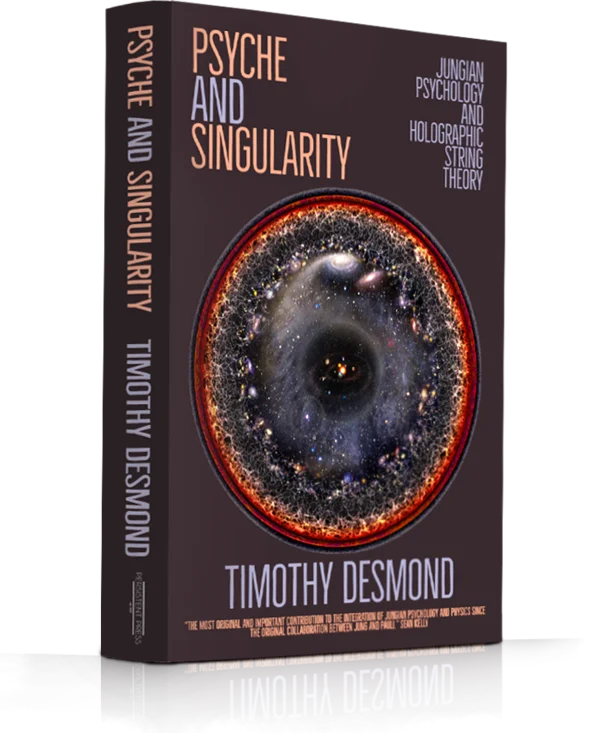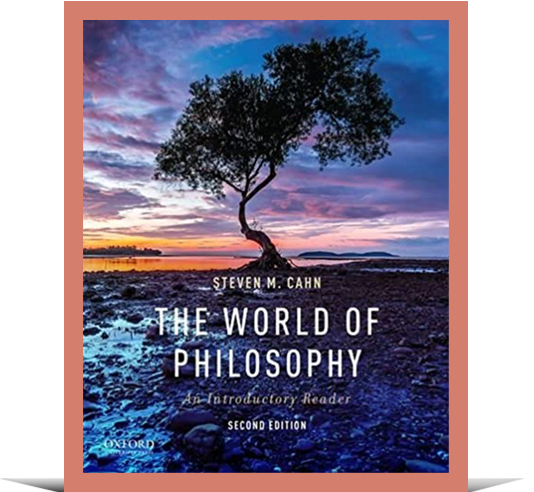What do String Theory, Depth Psychology, Philosophy, and Religion all have in common? They are easier to understand in the bright light of the Psyche=Singularity equation.
In this series of videos, I walk you through my book, Psyche and Singularity: Jungian Psychology and Holographic String Theory. These discoveries have opened a wormhole to the mysterious for many people, and they can do the same for you. Despite the daunting subject matter, you will be pleasantly surprised by how easy it is to understand this entirely new way to explain the ancient theory of the unity of each of our psyches with the cosmos as a whole.
I begin with a comparison of the psychologist Carl Jung’s near-death experience of the cosmic horizon, and Stanford physicist Leonard Susskind’s string theory of holographic information conservation at the cosmic horizon. With that in mind, I explain how Jung’s equation of psychic energy and mass, “Psyche=highest intensity in the smallest space,” can be simplified into the equation Psyche=Singularity, because a gravitational singularity is an infinitely dense concentration of mass in a point of zero volume.
I then retrace the history of physics leading to the string-theory interpretation of the gravitational singularity, and the history of philosophy leading to Jung’s concept of the collective unconscious archetype of the Self. Based on Jung’s theory that the same basic concepts of philosophy and science emerge throughout world history from the same collective unconscious archetypes, I also point out the historical precedents of Jung’s Psyche=Singularity equation, and Susskind’s theory that the past, present, and future are conserved at the cosmic horizon, from which they radiate in on elastic threads of energy to form the cinematic hologram we experience as our three-dimensional world evolving over time.
From the Vedanta philosophers of ancient India, Plato in Greece, and Lao Tzu in China, through medieval theologians such as St. Augustine and Dante, to the Enlightenment-era philosophers such as Descartes, Hume, Kant, and Hegel, I retrace the periodic resurfacing of this perennial worldview, which has most recently remerged in the Psyche=Singularity equation. Reading the history of physics and philosophy through the lens of this equation compresses that vast field of complex and opposing theories into a simple but infinitely deep point of comprehension in the reader’s mind. I hope you enjoy this video series, and I would love to see you buy my book and keep in touch. Many more things to come.


Timothy Desmond

Timothy Desmond

Timothy Desmond
In this series of videos, I examine my theory that Friedrich Nietzsche hid riddles in his books about the historical link between Krishna, Buddha, and Christ. I begin by arguing that in his first book The Birth of Tragedy Out of the Spirit of Music, Nietzsche secretly imitated the ancient Greek historian Megasthenes, so that when he writes the name Heracles (BT #10, #19), he really means Krishna, and when he writes the name Dionysus, he means Shiva. The implication is that, while overtly pleading for a rebirth of the mythical culture surrounding the musical celebrations of tragic plays in ancient Greece, Nietzsche covertly urges modern Europeans to embrace an even more ancient but still-living form of Hinduism that features congregational singing and dancing for the supreme God Krishna and His shadow-side, the demigod Shiva.
Nietzsche’s veiled prophecy began coming true in 1966, when His Divine Grace A. C. Bhaktivedanta Swami Prabhupada founded the International Society for Krishna Consciousness in the United States of America, from where he and his disciples spread the ecstatic Hare Krishna movement throughout Europe, and around the globe, in the late 1960s and 70s.
When Nietzsche said “I could be the Buddha of Europe,” he meant the Hindu conception of Buddha as one of Krishna’s Vishnu Avatars disguised as an atheist for the purpose of preparing a godless civilization to return gradually to Krishna. The Birth of Tragedy is the Alpha and Omega of Nietzsche’s literary world, away from and back to which he intended all of his books to lead.

Timothy Desmond

Timothy Desmond

Timothy Desmond
I used the following video series for a class I taught at the College of Southern Maryland. When appropriate, I related this broad review of the history of ideas to the Psyche=Singularity equation. In this class I was reading from a textbook entitled Four Fundamental Questions: An Introduction to Philosophy. The fundamental questions are: Who or what am I? What is real? What can I know? What should I do and who should I be? The editor, Richard Bilsker, addresses each of these questions with selections of philosophical texts from around the globe and from all ages. Arranged in chronological order, he organizes the readings so that they alternate roughly between two basic schools of philosophy: idealists and empiricists. Idealists generally believe that humans are eternal souls imprinted with eternal forms of knowledge, while empiricists generally believe that knowledge comes through the five bodily sense organs.


Timothy Desmond

Timothy Desmond

Timothy Desmond
I used the following video series for a class I taught at the College of Southern Maryland. When appropriate, I related this broad review of the history of ideas to the Psyche=Singularity equation. The following is the publisher’s description of the textbook we used.
Featuring selections from around the globe, Introduction to World Philosophy: A Multicultural Reader provides a diverse and engaging introduction to five key areas of philosophy: ethics, philosophy of mind and self, epistemology, metaphysics, and philosophical theology. The editors have arranged these topics according to their increasing complexity--from the most concrete (ethics) to the most theoretical (philosophical theology)--making the material as accessible as possible for students. Organized both chronologically and geographically, the anthology's five parts include readings from Indian, Chinese, Greek, Christian, Jewish, Islamic, Spanish, Latin-American, and African traditions, as well as selections from early modern, Kantian, and post-Kantian philosophy.


Timothy Desmond

Timothy Desmond

Timothy Desmond
I used the following video series for a class I taught at the College of Southern Maryland. When appropriate, I related this broad review of the history of ideas to the Psyche=Singularity equation. The following is the publisher’s description of the textbook we used.
Accessible, flexible, and affordable, The World of Philosophy: An Introductory Reader, Second Edition, presents philosophy in all its diverse array of thought and practice, offering a distinctive combination of standard analytical materials and Western historical texts alongside writings reflecting Chinese, Japanese, Indian, Arabic, African, South American, Chicano, and Native American sources. Approximately 25% of the contemporary readings are by women, including leading feminist theorists. Many articles have been edited to sharpen their focus and make them understandable to students with little or no background in philosophy. The readings are enhanced by introductions, study questions, and a glossary at the end of the book.


Timothy Desmond

Timothy Desmond

Timothy Desmond
I used the following video series for a class I taught at the College of Southern Maryland. When appropriate, I related this broad review of the history of ideas to the Psyche=Singularity equation. The following is the publisher’s description of the textbook we used.
What is the philosophy of religion? How can we distinguish it from theology on the one hand and the psychology/sociology of religious belief on the other? What does it mean to describe God as "eternal"? And should religious people want there to be good arguments for the existence of God, or is religious belief only authentic in the absence of these good arguments?
In this Very Short Introduction Tim Bayne introduces the field of philosophy of religion, and engages with some of the most burning questions that philosophers discuss. Considering how "religion" should be defined, and whether we even need to be able to define it in order to engage in the philosophy of religion, he goes on to discuss whether the existence of God matters. Exploring the problem of evil , Bayne also debates the connection between faith and reason, and the related question of what role reason should play in religious contexts. Shedding light on the relationship between science and religion, Bayne finishes by considering the topics of reincarnation and the afterlife.


Timothy Desmond

Timothy Desmond

Timothy Desmond

Timothy Desmond

Timothy Desmond

Timothy Desmond